Founder and CTO of Basecamp and Hey, David Heinemeier Hansson recounts their battle with Apple and the policy changes needed in the App Store.
In June 2020 Basecamp launched Hey, a new email service and app on iPhone and Android. After the app was already approved in Apple's App Store, a minor update triggered the Hey app to be rejected due to a lack of in-app purchase options.
Despite many apps following the same business model, such as Netflix and Fastmail, a drawn-out battle ensued between Hey and Apple that sparked a larger conversation regarding antitrust and App Store policy.
On the podcast, Hansson recounts the events that took place during the Hey app dispute and argues for a major change in the App Store policy: that Apple should finally allow users to install apps directly from developers without going through the App Store.
Through the course of our interview, Hansson describes what gives Apple monopoly power, how they have abused that power, and why the arguments of security and privacy no longer hold true in the App Store.
If you have questions or comments on the show, tweet at @stephenrobles or email us here. Find us in your favorite podcast player by searching for "AppleInsider" and support the show by leaving a 5-Star rating and comment in Apple Podcasts.
Support the show on Patreon to get ad-free episodes every week, early access to the show, and exclusive content for members only! Learn more at: patreon.com/appleinsider
Subscribe and listen to our AppleInsider Daily podcast for the latest Apple news Monday through Friday. You can find it on Apple Podcasts, Overcast, or anywhere you listen to podcasts.
Tune in to our HomeKit Insider podcast covering the latest news, products, apps and everything HomeKit related. Subscribe in Apple Podcasts, Overcast, or just search for HomeKit Insider wherever you get your podcasts.
Interview Transcription
Stephen Robles: Welcome to the AppleInsider podcast. This is your host, Stephen Robles and joining me today, we have a very special guest. David Heinemeier Hansson he's known as DHH on Twitter. He's the creator of the Ruby on Rails framework, co-founder and CTO of Basecamp, and Hey.com. And if that wasn't enough, also a race car driver, apparently. David, thanks for joining me on the show.
David Heinemeier Hansson: Thanks for having me.
Stephen Robles: I thought we should get the most controversial question out of the way upfront. And so my question is after having driven 24 hours at Le Mans, what did you think of the movie Ford v Ferrari?
David Heinemeier Hansson: I thought it was beautifully done and actually much better than I feared it would be. Most movies about racing are not only boring but bad. And this one wasn't. Even if it wasn't particularly realistic, it's one of those things. For example, how they zoom in on two racing drivers who are coming up next to each other, and one of them does this dramatic downshift— that never ever happens. It never has happened.
It's just not how cars work. If you're a race car driver, you're already driving in the gear you're supposed to be, and there's not this thing where you drive up next to each other. But other than that, I thought it was pretty good.
Stephen Robles: Okay, good. Yeah. Having no information on that world, personally, it was a fun movie to watch and based on a true story, it was pretty compelling. And so what, what made you get into that? Just you want to go fast?
David Heinemeier Hansson: I had always like racing games. So I've long, since I was, I don't know, four years old or five years old— whenever I tried my first video games— been into video games and racing games was one of my favorite genres, but I didn't get my driver's license until I was 25 and I thought I kind of had to make up for lost time. So I got my driver's license at 25, sat in my first race car at 27 and thought, "Geez, this is good. I want to do this some more." And it reminded me of frankly, a lot about programming, a lot about systems design. Driving a race car is very much an optimization problem.
You're driving around in a circle. There are some corners, but you keep getting the results. You keep getting the benchmark. Oh, this lap was one minute 34 seconds and two tenths and you'd go like, "Well, let's try something else. Let's try to take this corner slightly differently," and you get instant feedback.
And that feedback loop is really intoxicating and addictive in much the same way that I've found programming to be.
Stephen Robles: Interesting. So we're going to get into some topics that you've been historically pretty vocal about on Twitter as though you were preparing to record the show. I saw a flurry of tweets right before we hopped on the call.
So before we get into those topics, I wanted to ask, obviously, you're a technology guy. You've created Ruby on Rails, the framework, co-founder of Basecamp and Hey.com, but when it comes to technology day-to-day, Are you an Apple guy? Do you kind of flow between operating systems? Are you like, OS fluid or what do you actually prefer to use day-to-day?
David Heinemeier Hansson: I am Apple through and through from 2001, I think? I got my first one of those white clamshell MacBooks.
Stephen Robles: iBooks.
David Heinemeier Hansson: Yeah, the, iBook the iBook. And from that moment forward the Mac has been my primary operating system and computer. I've dabbled in others. I just actually, when was that, last year, just before Apple finally admitted defeat with the butterfly keyboards and I was just so frustrated by my own MacBook being broken again. I dipped my feet into a windows machine and checked that out. Hey, the keyboard worked and was actually great but I wasn't a huge fan of windows. So it was a relief when Apple finally said, "Okay, okay. We can't fix this issue that we've had broken for four years, no matter how many people have told us and now we're going to put out some back to the future version of our laptops and put some sister keyboards in the work again."
So the Mac in many ways, and this is what's been so frustrating about particularly the last let's say year of my relationship with Apple. I'm saying that as though it's a two way street, it's mainly a one way street.Like I have a relationship with Apple. Apple doesn't really have a relationship with me, but what's been so frustrating is that I've literally spent 20 years, not just being an Apple user, but an Apple evangelist and Apple promoter.
I think 2004, Jason Freed, my business partner, and I recorded pro bono an advertisement for Apple that they featured on their website. It's still on YouTube. It's very cringe worthy. You have 2004 me going on and on about how important the Mac is to my creative endeavors.
And then as late as when the Corona pandemic broke out, I think it was in maybe May or something like this, we got a call from someone inside of Apple who we'd been friendly with for while it who it like, "Hey remote work is new to us at Apple. Do you mind coming and talking about this? You guys wrote a book back in 2013 called Remote: Office Not Required. Maybe you can give us some pointers?" and we were like, "Awesome. Sure. Yes." Again, totally pro bono. We show up, do a session for 250 Apple employees just because Apple is an important part of my story as a technology user, as a programmer, and to be able to give back to that felt great.
It's felt less great, I'd say, after then what happened last summer, but I still, I try to be able to separate Apple the monopolist, Apple the policy abuser, from Apple the producer of technology. That's getting harder and harder, but I think it is still possible. And I can still marvel, for example, at the M1 chip and what they've been able to do with speed and power consumption and all these other things and go like, do you know what? That's legitimately awesome technology.
That's great. And we should applaud that and we should celebrate it. And I can do that and chew gum and walk at the same time and also go like, hey, we have some serious problems here with the most valuable, richest, most profitable company in the world. They have an amount of power now and they're exercising it in ways that are really just unfortunate and we should talk about that. We should do something about that.
Stephen Robles: Yeah. And that's what I wanted to establish because as we get into criticisms of their policies and what they've been doing recently, you are a user, it's not like you never used a Mac or mainly Windows user. You're an Apple guy. I've seen you tweet love for the iPhone 12 mini as something that you really enjoy using.
David Heinemeier Hansson: Yes.
Stephen Robles: And so I'd like to start a little bit about what Apple might be doing right. And as you're saying, hardware-wise, development, their products great there. I'm curious what you think about their strides and privacy.
Apple is very vocal about privacy. Tim cook, speaking about it, not only at Apple events, but even to the press and in interviews, iOS 14.5 is out with the apps, have to surface that ad tracking opt-in screen, Safari on Mac has increased its privacy tools. Do you believe that Apple is making the correct strides, at least when it comes to privacy and user's data?
David Heinemeier Hansson: Yes, but. And I'll explain the "But." The but is that I think I used to believe that this was just purely the good intentions of Apple, that this was just something they inherently and deeply cared about. And I think there's some of that, and I think there's definitely people inside of Apple who do that, right?
But I think on an overall scale, like why are they doing this in a way that others aren't is because their business model aligns with it. Unfortunately it aligns less with it now than it used to do. When Apple was a company that derived the vast majority of its revenue and profits from selling hardware, it was a complete, no brainer for them to be a hundred percent in the privacy court right?
Now that they're moving into services and that's become a more and more important part of the business, I think we're starting to see in some ways where this thing sort of cracks. That Apple, for example, now sells advertisement. And in fact that they'll sell targeted advertisement. Do you know what? That's not great. I wish that Apple would be able to take the historic stronger stance on this and simply say, "That's just, we're not going to derive revenue from advertisement. That's not the kind of company we're going to be. And by saying no to that, we get to say yes— without any buts— to the privacy angle," which in my opinion, is both more worthy of a cause and I also believe ultimately better business.
Apple's stance on privacy is one of those key reasons why I remain, despite it all, an iPhone user. And I think it's one of those things where you can see sort of the outlines, right? That companies respond to the incentives that they have. And Apple, they're pure hardware company making money on an ever expanding iPhone market, responds to those incentives really well.
The Apple company that now is moving into services and making that an ever more important part of their portfolio and start selling ads and tracked ads and so forth, it becomes harder because the incentives aren't as striped. But still, if we compare them to Google or Facebook or Amazon, there are leagues ahead when it comes to basic privacy protections and that's good and we should celebrate it.
Stephen Robles: Okay. So you've talked about monopoly a lot and you've tweeted in support of some of the stuff that the US House Committee is doing. The House Antitrust Subcommittee. The chairman is David Cicilline. He's been after Amazon, Apple, Google, and Facebook, saying monopolies must end. And so I wanna explore this idea of monopoly.
And when you think of those four big companies, Google, I think it is pretty natural to see there's a monopoly on search, maybe even independent video creator platforms in YouTube, Amazon with online shopping, Facebook in the social media space. A service like the App Store on the iPhone, is that the monopoly or when you think of Apple and monopoly, what area of the industry do you feel like they have monopoly control over?
David Heinemeier Hansson: Over the most important pocket computing platform in the US, in December of 2020 Apple was responsible for, I think 65% of all pocket computers, or as we like to call them smartphones in the US.
And the other seller was Google's operating system. There were many more sort of vendors through their Samsung and LG and Sony and so forth. But if we just take in terms of operating systems, which is really where the power comes from, right? Apple is the dominant platform. And even that 65% number does not reveal the extent of their power.
So as we found with Hey.com, our new email service that had let's just say a skirmish or perhaps even a fight for its survival with Apple last year. To this day, something like 77% of our paying customers are iPhone users. So the amount of market power that Apple has through the iPhone is extreme in the US.
Now things are different internationally, right? And in some areas like Europe, they have nowhere near the same amount of power. They still have a lot of power. If you go to India, for example, they have much less power. If you go to a bunch of other areas, there's much less power, but in the US, which is what the House Antitrust Subcommittee is about, where our business is based, this is really what we're talking about. Apple's power is dominant. So the problem with that power is sort of interesting. Monopolies in and of themselves don't have to be a problem. You have a dominant market share, but you're not abusing it. You're just like, "Hey, we're the thing that most people pick to use." And you can go, "Okay, that's something to have a watchful eye on," but there isn't necessarily an offense.
The offense comes in when you take that monopoly and you then use it in abusive ways. And that's where the App Store comes in, that Apple has this dominant platform. And then they say, "Okay, [if we're just talking about the App Store problem] there's only one path to get software onto your pocket computer. It's through the App Store. Who controls the App Store? We do. Who sets the rules for the App Store? We do. What are those guidelines based on? They're based on what we want." So it gives them this outsized power to do these really abusive things like saying, "Do you know what? 17% of app developers should just like pay for the whole thing."
And you go like, "Wait, what, what what? Why? Because they sell digital goods and services and we believe that's the easiest loot to capture?" And you go like, "But what about Uber? What about GrubHub? What about some of these other— " "No, no, no. They can just process their own payments. They can take the credit cards."
And then you go like, "But what about Facebook? They make billions of dollars off this, right? How many resources does Facebook use out of the App Store system in terms of bandwidth, in terms of everything, right? Like it's gotta be astronomical. How much does Facebook pay for all of that? A $99 developer license fee?
And then I go like, "Oh, but I want to sell an email service." If I make a million bucks on that, or just over a million, a million and one dollars, how much do you have to pay for that? Oh, $300,000. A year. What?
Stephen Robles: The Hey.com debacle, we reported on that and I really want to dive into that in a moment, kind of in the details of how those interactions went with Apple, but when it comes to monopoly, are you saying that Apple has a monopoly on its product?
David Heinemeier Hansson: No, I'm saying that in the US, again, we have to distinguish—
Stephen Robles: Right because internationally, this is not the case. Internationally, iPhone is not the predominant platform.
David Heinemeier Hansson: Right. in the US the iPhone is the predominant platform in sort of segments of the market. That's the other thing, right? Like iPhone or at the smartphone market or the pocket computer market, whatever you want to call, it is also stratified, right?
And the lion's share of the economic activity that happens through commerce on this general computing platform happens on the iPhone.
Stephen Robles: People who buy iPhone spend money, basically.
David Heinemeier Hansson:. Right. Exactly. They spend way more. I saw, I don't know how out of date these numbers are, but I thought I saw at one point that the apps were processing something like four times as much as the play store did. So that they had 75% of the economic activity. And that's the part that gives it the problem, right?
Stephen Robles: But is that Apple's problem, because they make a product that people who spend more money choose to use their devices?
David Heinemeier Hansson: That's exactly what we need to establish is that like in and of itself, having a poplar product is not a problem.
The problem is if you take that market position, that dominant market position, and you then start abusing it in certain ways. Starting to have discriminatory pricing as Apple does with like, "Hey, you have to pay, you don't have to pay" If they start using that monopoly for tying, for example, "Oh, we see that music streaming has become popular. We totally overslept on that and thought it wasn't going to take off, and now we're like four years late. So we're going to launch a me-too service, like Apple music streaming, and to make it competitive with something like Spotify, that had already done very well in this area, we're going to put them at a price disadvantage. We're going to advantage and tie our own product into this monopoly platform we have."
That's when the problems start arising, which is exactly what that House Antitrust Subcommittee found. They published a 450-page report a few months ago. Apple is like 120 of those pages, where they just go in depth with all the issues with their monopoly power, not just that there IS monopoly power. The report is not afraid of saying, "Hey, Apple has monopoly power.
Second, here are all the ways in which Apple uses that monopoly power in ways that are market distorting. And here are the ways, for example, where we have internal Apple employees saying things like, "Yeah, the App Store review process is essentially a front for competitive actions where we say, Well, you get to pay, you don't get to pay. You get to stay. You don't get to stay, according to not sort of some higher abstract ideals, but just what makes sense for Apple's business right at the time." And again, it's those revelations where you have to look at those and say like, do you know what, that's the problem.
Stephen Robles: So let's talk about the App Store because we're here. Last year, you launched Hey.com the email service, and it was originally approved for the App Store.
And then after a minor update, it was rejected because users had to go and sign up for the service outside of the app. And Apple was arguing that your app doesn't do anything when people open it and you can't have them pay for it elsewhere and force them to sign in to use the service. When we reported on it, I talked about it on this podcast, there were cases that was blatantly a contradiction of terms. When you look at something like Netflix, which had the exact same business model. You could not sign up within the app. You couldn't do anything else with that. You had to pay for Netflix. You still do. You still have to pay for Netflix outside and then sign in.
So when that fiasco was happening, did you guys have any kind of recourse to talk to Apple directly or was it all through secondary channels or how did that process work?
David Heinemeier Hansson: Yeah. It's funny you mentioned this contradiction in terms because it became such a joke that someone literally made the website youdownloadtheappanditdoesntwork.com. And that all came from a quote that Phil Schiller gave in an interview with tech crunch. He was trying to justify it in the press of why were they picking on Hey? And then he came up with this new arbitrary standard that is not described anywhere in the App Store guidelines which just like shooting from the hip in an interview. Oh, it's because they download the app and doesn't work. Right. And then someone compiled this thing you mentioned Netflix, there's people like GitHub on there, Google docs—
Stephen Robles: FastMail, which is ironic because it's also an email service. I'll put this link in the show notes because the website is still active.
David Heinemeier Hansson: It's amazing. It there's even apps by Apple on there, like the App Store Connect App where you just download it and just the login form, you have to sign up somewhere else. So obviously that whole argument was complete bull.
Right. But we never got to hear that from Phil Schiller because the way the App Store process works is in itself a form of abuse. The only way you get to talk to Apple is you submit your app for review. And then Apple has this internal communication system around the review process. But for example, if they then close it and say, "You're denied," these things just live in Apple system, you don't get to take it out. You don't get to take the information with you. You can't review your past archive of communication. And then when Apple does, is this really sly thing where they move all the controversial discussions into phone calls, because phone calls have no records, which is really convenient when you're discussing things that might one day appear in a lawsuit.
That's exactly what happened to us that once we hit the dead end on the internal communication system, Apple switched to just calling us. It was always this— you can only get the first name and I doubt it was the right name. I tried to remember what the name they used was like John or something. "Hey, this is John from Apple calling."
Stephen Robles: Johnny Appleseed.
David Heinemeier Hansson: Maybe that is what it's based on, right? So you ended up in this weird way where we couldn't really talk to the people who were making decisions, even though obviously those decisions were being taken in a very high level, because as you mentioned, first Apple totally approved us.
And we celebrated that and we used that to kick off the launch of our whole thing. We had held the launch of the service back to make sure that our app was in the App Store and in the play store as well. And then that Monday we did our big push. Hey, now we're here. We're up. And then it was also that Monday that Apple showed up and said, "Oh, actually, no, you can't be here unless you run all your payments through us and give us 30% of your revenues."
So the whole communication process was then very odd. And of course, five seconds into it, it got even weirder because first on that Monday, I just went like this, a mistake, like Apple already approved that this is a mistake.
Mistakes happen all the time in the App Store. So I've still since learned how the App Store actually operates. And of course, mistakes happen all the time. Right? App reviewers are hired not on the basis of any technical or security skills, they're hired on the basis of teamwork was one of the things I saw mentioned in the job openings.
And then they're put under a workload that's 50 to a hundred apps to approve per day, which means they can just spend a few minutes at most on each app. So it's completely predictable that such a system would produce just an endless stream of errors, right?
Stephen Robles: Are these people actually on campus at Apple? Like, are they full-time employees?
David Heinemeier Hansson: I don't actually know. No. Apple is very secretive about that whole process. And I think it's owned in part through the power of lawsuits, like the Epic v Apple battle that has allowed us to peek under the covers here because Epic can subpoena Apple or requests, emails, documents during discovery.
And then you find out these weird things, right? Where you go like, "Oh, now so many things make more sense," that Apple hires unqualified people to spend a few minutes per app. Of course that's going to produce these bizarre outcomes we're having and those were the interactions we had prior to this.
We had Basecamp in the App Store at that point, like eight years or nine years or something, and we'd have these weird things in the process where sometimes we submit an update and all of a sudden we'd hear about some issue that been in the app for like four years. And we'd be like, "What? Where's this coming from?"
And then oftentimes the approach is you just submit it again. You're going to get another app reviewer. Who's going to spend another couple of minutes on it, and it's entirely possible that person is going to come to a different conclusion and your issues kind of going to go away. So that's actually what we tried first.
Do you know what? Let's just do another update. We have some more fixes. We'd been working on it for a couple of other days. Let's just submit one more update and then just see where it goes. Most likely it's just going to go away. Right? So we do that. And then the next day— first of all, that was also a little weird, like how quickly we just got a response— the next day we got the response and the followup and the phone call that was essentially, "No, this has been bubbled all the way to the top. It's not going to happen."
Stephen Robles: So do you, what do you think have bubbled up because of who you guys were and your guys' relationship with Apple in the past, or just because of the nature of the app?
David Heinemeier Hansson: It's a good question. Actually, in terms of how much it had bubbled up, had it bubbled all the way up to Phil Schiller at that point, I'm not sure.
I think it had bubbled up somewhat, right? Because we were racing these objections saying like, "What? This doesn't make any sense. We were already approved. It had just gone from. the individual app reviewer that sat with it at that point. So they had bubbled up and said like, "No, this is just not going to happen."
And now I started actually to get concerned. We had spent two years and millions of dollars developing this new system. Right. We knew when we launched this, that we had to be on the iPhone. If you launch a major email service and you're not on the iPhone, it's like, you aren't there.
As the stat I just quoted earlier reveals, 77% of our customers have I phones so you need to be there otherwise you don't exist or the businesses and even viable. So anyway they communicate back and forth and eventually the conclusion is, "No, this is final. Can't be in the App Store unless you give us 30% of your revenues."
And that's when I flipped my lid on Twitter.
Stephen Robles: You flipped your lid? That's so rare!
David Heinemeier Hansson: In terms of lid-flippings I've had on Twitter, this is one of the all-time greatest, I think, because I was just, I felt so ambushed. We've been in the App Store for so long, we knew what, well, we thought we knew what both the written rules were and what the unwritten rules were. And one of the unwritten rules for example, is, "Okay, you can have your subscription service. That's sort of a multi-platform service in the App Store. If you just don't mention it." There was basically this, a gag order. That like you can't link to your service. You can't tell users about it, but if you do those things—
Stephen Robles: You can't link to your website
David Heinemeier Hansson: Exactly. And you can't even mention a website. It's even wilder than that. The gag order is deep, but we have complied with that. There were no mention in the app about any service. It didn't link to anything. We had done all the same things that we'd done with Basecamp. So we thought that meant that we were safe. And then to find out that all of a sudden the rules had actually changed. Not the written rules, like the written rules as Apple were keen to point out, "No, no, they haven't changed since 2010" But no, the interpretation of those rules had changed. And all of a sudden Apple had made a switch that we were unaware of that now they wanted more apps to pay.
Stephen Robles: Right. And you have no recourse or appeal process at that point. You're at their mercy.
David Heinemeier Hansson: Oh yeah. Totally. Absolutely. Apple basically just said "This is final."
Then it came to the point that not only did they say this was it, but it was followed up with a threat. Like either "You do this or you're going to get kicked out at the store." It was such heartbreak. It really was. As I said, I had been an Apple booster for 20 years. We had literally just months prior done this free webinar or whatever you want to call it with Apple to teach them about remote work.
Then they just turn around and burn us like this? And perhaps in some ways, this is sort of that privilege showing where I've heard about this for years, right? Like I've heard about developers having really bad experiences with the upsell review process, also to things that didn't make any sense.
And you're like, "Man, this isn't right." And in fact, I had, I'd gone to testify in front of that committee. We've talked about the App Store or the House Antitrust Subcommittee about six months earlier. They were looking into all these four major, big tech platforms. And I'd spent some time talking about the App Store problem, particularly around Apple, but it was never sort of my problem.
It was sort of, "This is a problem in the industry, huh? Someone should really do something about that." We're probably special. Like we have all these contexts with Apple, we've done all these things for Apple. When they launched the iMac pro sent me a free iMac pro. Because they were basically like, "Oh, we want to know what developers think about this stuff and you're a programmer." And like, essentially, "Hey, we'll send you a free computer and then we'll get some good publicity or whatever." So like we thought we had a special relationship and of course that in itself is a form of corruption. But when you're in it, you go like, ehh? Right?
And this was what we first thought. We thought, "Let's just reach out to some of our Minneapolis contexts," and we did. And then it was really weird. It was total crickets. Yeah. No one from within Apple wanted to touch this thing with a 10-foot pole because they kind of knew that like, okay, this had bubbled all the way up. And eventually ended up in Phil Sheila's lap. Which of course like no one inside of Apple is going to stick their neck out. When Phil Schiller's on the other side of the argument.
Stephen Robles: Now in the end, you guys were able to work something out where they weren't getting the 30% cut. Is that accurate?
David Heinemeier Hansson: I think "work something out" is probably the kindest euphemism you could possibly apply to what came out of this.
Stephen Robles: Sorry, how would you say it?
David Heinemeier Hansson: Well what happened was we kicked and screamed for two weeks straight and this came at the most inopportune time for Apple. They had a rock and a hard place. The rock was the Apple developer conference was kicking off like the following Monday.
And the hard place was that Tim Cook had already been summoned to appear in front of the Antitrust Subcommittee I think like three weeks later. So this was just the worst possible time for Apple to have this blow up in their face. Yeah. And I think at first they thought, "Hey, we're Apple. If we tell developers to jump, they jump, they asked us how high, right?"
Like they were completely taken aback by this idea that a developer could say, no, this is just a foreign concept to someone with Apple's amount of power. So when we said no first, they were like, "Well, we'll just make them, we can threaten to kick them out of the App Store and we'll destroy their business overnight. Surely no one would be so dumb as to keep fighting once they know we can burn their shop down."
And I think we weren't that dumb. Right? I was that dumb. I literally said that on Twitter, that like, I'd rather burn the business down than to let Apple get away with this, to let Apple take 30% of our business in this regard.
So we'd already put the stakes out there and we'd already put our red lines and this was just a terrible time for Apple to have this issue. So they went like, all right, make it go away. And the way they would've made it go away was essentially they retreated from their original position of saying, "Oh, we have to use the in-app payments."
And to the this bizarre twisted logic of you download the app and it doesn't work. But again, this wasn't at the time and has not since been introduced in the App Store guidelines. This is not a thing that exists outside of Phil Schiller's head as he made it up in an interview.
But it then became the governing sort of discussion point, that, "Ok, you have to do something to the app, such that it does something when you downloaded it. Phil Sheila can save face in front of the tech crunch interview that he did, and that'll be our compromise." So we ended up doing this thing where we bolted on an additional service on the side of the thing we wanted to do, which was a temporary email service with a generated email address that you could use for things like, I don't know you're doing a yard sale and you don't want people to have your email address so you can put it up temporary, whatever it's dumb.
Stephen Robles: Super weird.
David Heinemeier Hansson: Yeah. It's weird. It's totally weird. And it's totally confusing, this is also the point that I think is really important to make here is that like Apple keeps saying like, "Oh, we're doing this for users." No. Apple made us introduce an additional service that keeps alluring new, Hey users into this weird path where they then complain, like, "What do you mean it's temporary? Why can't I pick my email address? Why does it stop working after two weeks?"
We are constantly dealing with this stream of confused customers that Apple deliberately made us confuse. And this is the part that just really just blows my mind in all of this is like, "Aren't we supposed to be on the same side here?"
Like, hey, we make cool software. We put it on the iPhone. Customers get to use our cool software and they get to feel good about your iPhone. Why would we conspire to make it harder to understand? Why would we conspire to confuse people? Oh, well this is the strategy tax, right? So that's where we ended up today.
Hey is in the App Store, we've spent again another year of development and another many hundreds of thousands of dollars developing and improving that app for Apple's computing platform. And it's not paying the 30% and that's, I don't want to call it good because it's not good. Right? Like we're still in this weird position where, why can't we just make a great app? Like we're just trying to make a great email service for your product. Right? Why can't we just do that? And that continues to infuriate me, but at least we're not sort of out of business.
Stephen Robles: So it's been almost a year. And I imagine there hasn't been communication back and forth between you guys and Apple, but have you contemplated, like, maybe taking away the temporary email thing or do you know for sure if you remove that, you'll be booted again from the App Store?
David Heinemeier Hansson: I think at this time, if we remove that, we probably would be booted from the App Store. Apple would love to have an excuse to pull us from the App Store, because we've been a pain in the ass ever since.
I think perhaps Phil Schiller and the rest of the team at Apple thought, like, "All right, if we'll let them get away with this wink, wink, nudge, nudge, they'll shut up about it." Which is a profound misunderstanding of how I process my relationship with the world, which is no, absolutely not. This infuriated me to no end and put me on essentially this path of like, do you know what? We've got to do something that's not just a buy-off to us.
It can't just be like Apple bought us off with this weird compromise. Right. We've got to fix this at the root core. And that was what put me on the path to start providing testimony in a ton of different jurisdictions. I've testified in a bunch of different US States, we've submitted documentation to two EU member states. Talked to the EU, talked to a bunch of regulators and legislators who can actually do something about the root cause issue. And in fact, as we're talking today, there's tomorrow another hearing in the United States Senate, specifically on the App Store problem. So this is clearly something that's thankfully caught the interest of regulators and legislators around the world.
And I am showing up to all of that. So I'm sure Apple would love to just shut me up with that, but we're kind of like in a stalemate on the Apple question, in that regard, as long as we don't screw with how things are, I'd be surprised if Apple suddenly goes, "All right let's smack these people down."
It would just look terrible, right? We're like, we're retaliating against you.
Stephen Robles: So my question for you then is going to be what is. the solution and, Apple has been touting the security of why the App Store is the way it is and why it's closed. And now recently we've had developers and people tweeting all these scam apps that have made it through you tweeted one even this morning again.
And so the picture is becoming a little clearer that the security argument is not holding the same water as it maybe had in the past. Not to mention their other major operating system, Mac iOS allows users to install apps from third party developers directly outside of the App Store. So do you feel like the solution is that? That users should be able to install apps from developers directly, not needing the App Store, or the solution that Epic is probably going to be pushing for in their case coming soon, of multiple App Stores on the iPhone?
David Heinemeier Hansson: I think if you pay $1,400 for a new pocket computer, you should be able to install the software you want to install. So that's sort of my fundamental stance. That's what I want. When I buy a new iPhone, I want to be able to install the software that I'm interested in installing, not just the software that appeases Apple or that Apple thinks is in their interest for business model reasons or otherwise to have in their store. So I think that ultimately is the solution.
And as you say, Apple already has the answer. The Mac works like this. I've not had any issues with the Mac at all for both Basecamp and Hey, we distribute native software for the Mac and we don't go through the App Store because we don't want to pay 30% and we don't need to. Downloading software off the internet to install on your Mac is great. It totally works. And in fact, in many ways it's even better as these latest scams have revealed that when Apple goes out and says, "No, no, no, our App Store with 2 million apps is totally secure. We've reviewed everything.
And like, there are no scams," you totally let your guards down. And then we find out every app reviewer is first of all, hired without any qualifications for the work that they're supposed to be doing, and they're tasked with reviewing 50 to a hundred apps a day. How could that system ever produce anything where you end up with 2 million apps that are all thoroughly reviewed and aren't scams and so on. That's an impossibility.
Stephen Robles: And you would think they would at least check, "Is this app going to charge users $10 a week as opposed to a month or year?"
David Heinemeier Hansson: That's the thing that really just sinks Apple's entire argument, Their whole argument is, "Payments have to go through us, such that we don't have scams."And then we just have this avalanche of revelations coming out about all the scams that are using Apple's own payment system. And it's even worse because in these cases, Apple is literally complicit.
Kosta, who's one of the people who has been revealing a lot of these scams showed a scam, I think it was last week, that had grossed $5 million going through Apple's in-app payment system, which means that Apple has made, what is that, $2 million or something off that scam? Like they're literally complicit with the scammers because they use the in-app payment system that Apple operates and therefore takes a cut from.
So Apple is in many ways, worse off when it comes to their reputation. And when it comes to protecting it from scams and putting users in the right frame of mind on the Mac than they are in the iOS platform, which is just truly bizarre.
And it also completely undermines this idea that like you can't technically make a safe platform unless you manually review every app for two minutes by people who are not qualified in any way, shape, or form to do so. If that's the ballpark against malware and viruses and so on. I don't know how long you've been using the Mac, but as we just talked about, I've been using the Mac for 20 years. Am I constantly paranoid about viruses? No. Am I constantly paranoid about malware? No. What I do do is some due diligence, right? I don't go to super sketchy sites and download super sketchy software and run it on my computer.
Stephen Robles: Right. I've been using Mac since 2004. So a few years after you had started and like you said, I have not had those issues. And then now I'm not defending Apple's stance in the App Store, but I do find that on the Mac, there will be users— friends, and family that I know— that don't download shady software, but somehow do get malware on their Mac, whether it's one of those weird things where it'll automatically go to Bing search engine, because Chrome something, it's not perfect. You can install malware, even not intending, even not going to shady websites.
David Heinemeier Hansson: I think that we at least just need to acknowledge that the fact that Apple's primary argument here, that the App Store with its 2 million apps, is like this totally safe and secure store. It's a fantasy. And it has to be a fantasy because as we have gotten revealed, this idea that unqualified app reviewers can spend a few minutes reviewing an app and that's enough to keep everything out. It's just nonsense.
Stephen Robles: Did you get that information from someone with an Apple or
David Heinemeier Hansson: This was as part of the Epic v Apple lawsuit. I'm sure why Apple is not keen for this lawsuit either because during discovery, you get to say like, "Hey Apple, give me all your internal emails about App Store deliberations."
This is also where that smoking gun came from, where Apple's own internal security team raises issue with the App Store. And essentially says like, we're trying to defend against scammers with what was the quote, like a butter knife or something, right? Like literally we cannot do the things we're saying we're doing we're in many ways deceiving the public about the security that the App Store is offering, right? Like what we're offering a security theater and what we're selling is actual security. And those two things are not the same.
Stephen Robles: Right. Again, back to the solution. If Apple were to allow iPhone and iPad users to install software directly from developer's website, like you can on the Mac, do you think that fixes a majority of what is dysfunctional about Apple right now?
David Heinemeier Hansson: Yes. It fixes what's dysfunctional about the App Store being used as this toll booth for access to the iPhone. And it fixes it in many ways, right. In one way, because that's what we would do. That's what I do. I'm not looking for Apple to give me help with marketing. First of all, that's often an argument that's being trotted out. No. You're not just paying to be in the App Store for bandwidth or whatever, even the security theater. It's not just that you're paying for it. You're paying because Apple might feature you, right? Like this is where you find your customers and what our customers don't find us there. Right. They find us because we have our own brand.
Stephen Robles: Most developers don't benefit from some kind of Apple push more often it's podcasts like this one, talking about independent developers, making small apps.
David Heinemeier Hansson: Yes. And not only would it sort of address that, right. It would actually make things better for customers. One of the huge frustrations a lot of services have on the App Store is that they don't sort of have a direct relationship with their customers. So if their customers, for example, need a discount or need a refund, they can't help. They're going to be like, "You got to go talk to Apple. Like technically you're not even our customer, you're Apple's customer." Apple then buys licenses from us that they resell to you. And then you've got to go through them if you have any issues. I've heard from several companies who will actually, rather than do that, they'll just cut the customer a check.
Like they never got the money. They can't recoup the money, but the hassle that it is to process this is so bad that it's simply easier and better for their reputation to essentially say to the customer, "Okay, fine. You're going to get your money back." Even if that's not how it's supposed to work, because rightfully so.
When someone goes to download the Hey app, do they think they're doing business with Apple? No, they think they're doing business with us. Of course they are. It's our app. So they think like, "If I want a refund or if I think I'm eligible for a discount or something that I should go talk to the Hey people."
They don't think, "I should go talk to the Apple people." But that's how the system works right now. So I think actually in, in all the ways, this would be better even for Apple. Because ultimately Apple needs to have the iPhone to have the best user experience. And what we currently have is a really bad user experience.
The Mac experience in comparison is far better. That's where the problem with the strategy tax comes in, right? Like we make so much money. Apple makes so much money off taking a 30% haircut of all these apps that it's very difficult for them to understand what that paycheck depends on them not understanding.
Stephen Robles: Well, Tim cook has said he will be resigning probably in the next 10 years. Are you saying that you'll put your hat in the ring to fix this?
David Heinemeier Hansson: The funny thing is here, there are some problems in this world that are very difficult, that we're all like, "Oh, these are very difficult problems."
What is the solution? The solution is right here, right in front of Apple. This is not difficult on neither a technical or philosophical level. Apple is literally doing it right now with this other great platform called the Mac. It's not like they don't even have any experience here or they don't know how that might go.
If Apple simply followed their own example, They could get out from all under this. But what I do think is interesting is that Apple has a double-edged sword in their personnel rings, which is that a lot of people at Apple has been with Apple for a very long time. And they remember a time where Apple was a scrappy little almost out of business company. And that image is still in their head in terms of their grievances, right? Some of these quotes that have come out of Apple where they're like, Developers just simply owe us." Do you not realize that 20 years have passed? You're not almost out of business. They don't need the most valuable business in the world.
You are, you just returned $30 billion to investors in a single quarter, like you're setting all the high water marks of like capitalism on the all time records, right? You're not a scrappy little startup anymore. You have to wake up and realize the kind of company you are today. And if you do, I think some of these things would change too.
So some of it, I think, unfortunately perhaps has to come along or will come along with personnel change. When did Apple admit that the scissor keyboard was a failure that could not be fixed? After Jony Ive left, as brilliant as that man is, and so much of what I like about Apple hardware comes from the brilliance of him, he was the impediment for them to accept the mistake they had made with their computing platforms. That this, what was it, a millimeter, I think it was that you gain between the scissor and the butterfly, that, that millimeter was so important to him that he would rather have a bunch of broken computers, then give up that argument and it took Jony Ive getting out of Apple for them to say, "Okay, we're going to eat the millimeter." Did anyone complain about the millimeter come back? "My Mac book is a millimeter thicker. I am not buying this garbage." No, they all went like, "Hallelujah! When I pushed the keys, the characters appear on the screen without being doubled! This is amazing." So I think that we've also seen some of this already, Phil Schiller shortly after this stuff, last summer
Stephen Robles: Becoming an Apple fellow.
David Heinemeier Hansson: Exactly. He was giving up his VP title. He was going to move to an Apple fellow, which was sort of much the same trajectory that Jony Ive first followed. First you give up some of your responsibilities so you can weave a story of continuity with the shareholders and so on, and then slowly you fade out. I do think that there is a hope that when Phil Schiller no longer has this personal beef sitting in the way of Apple doing the right thing, Apple will do the right thing.
Stephen Robles: And I don't think it's even to say the App Store has to go away. When I talked to Paul Catharsis, the Mac has both, you have the App Store, you have independent developers selling. And me as a user, I'm glad that I get the choice. There are some times where there is a benefit to buying in the App Store, whether it's because I just want to know I'll be able to install that app on a future Mac, or maybe it's a developer that doesn't have the infrastructure and resources to distribute their app personally, on their own personal website. And so it can be mutually beneficial. And it's not to say that no one's ever going to use the App Store again.
David Heinemeier Hansson: The majority will continue to use the App Store, right?
This is what gets me about this, that Apple is so insecure about their own offering. That they don't even dare giving consumers and developers a choice because they fear they will pick something else. And some of them will, right. We'll pick something else, but you know what, if I were starting out tomorrow, I was like a single person making a new app, I'd probably go with the App Store. It's just easier to deal with taxes. They deal with all sorts of stuff. It's worth the 30% at the very low end.
Stephen Robles: Which is now 15%. If you are in the low end.
David Heinemeier Hansson: Exactly. Even better, like until you are starting to make more money and have a larger staff, you can just go like, do you know what? No brainer, totally worth it.
The same thing as a consumer. I actually wish that the App Store would be more restrictive. Some of the scams that Kosta in particular have unearthed the latest one I saw this morning with this just truly bizarre game that was rated for four year olds with some dominatrix and a dogman, you just go like, "What? I don't even want my kids to see this." Can I get a more restrictive App Store? Like rather than having the App Store be the only gateway to the iPhone just that Apple feels like, "Well, we need to have 2 million apps in it." Could the App Store just to have like, I don't know, a hundred thousand apps in it? And they were all like carefully vetted, like very high quality? And there wouldn't be these monopoly issues because. Apple could always just say like, "Hey, you can just distribute your stuff directly." So I think on both ends, it would be such a benefit and Apple would get out of this pickle. It's essentially this impossible mission that they've given themselves.
Like that they can adequately curate 2 million apps. That's just not a thing you can do, but they have to do it because they painted themselves into this corner. But the thing that gives me hope is that this corner— there's a door. Apple can open that door at any time of their choosing and say, "Okay, do you know what? Fine. We'll make the iPhone work like the Mac. We'll have our curated App Store and it won't have these weird four-year-old games with dominatrix and dog men and all this other stuff, because we'll be even more stringent. And instead of our app reviewers being both unqualified and overworked, We'll hire a more qualified workforce and we'll have them review, I don't know, 10 apps a day. It's just that they can actually spend careful time reviewing these things and we'll have certain standards and everything is going to be better."
Stephen Robles: That's good. And on that note, David, thank you so much for coming on the show. Listeners can find you at DHH on Twitter. Hey.com is your new email service, it's awesome. Would you point anyone else to any of your work?
David Heinemeier Hansson: I have started writing in long form at world.hey.com/dhh. I'm trying to wean myself off some of this Twitter stuff.
Stephen Robles: And I do maybe in the future, I'd love to talk to you about social media and, going back to web 1.0, because that is a whole other conversation to be had.
David Heinemeier Hansson: Anytime.
Stephen Robles: David, thank you again so much. I appreciate you coming on.
David Heinemeier Hansson: Thanks for having me on.
Subscribe to AppleInsider on:
Links from the show
- David's Blog on Hey.com
- David on Twitter
- The App Store is broken because it wasn't designed to work
- Coalition for App Fairness wants iOS app distribution to work like Windows
- You Download and the App and it Doesn't Work Website
- Phil Schiller's Interview with TechCrunch
Those interested in sponsoring the show can reach out to us at: steve@appleinsider.com
Stay on top of all Apple news right from your HomePod. Say, "Hey, Siri, play AppleInsider," and you'll get latest AppleInsider Podcast. Or ask your HomePod mini for "AppleInsider Daily" instead and you'll hear a fast update direct from our news team. And, if you're interested in Apple-centric home automation, say "Hey, Siri, play HomeKit Insider," and you'll be listening to our newest specialized podcast in moments.
 Stephen Robles
Stephen Robles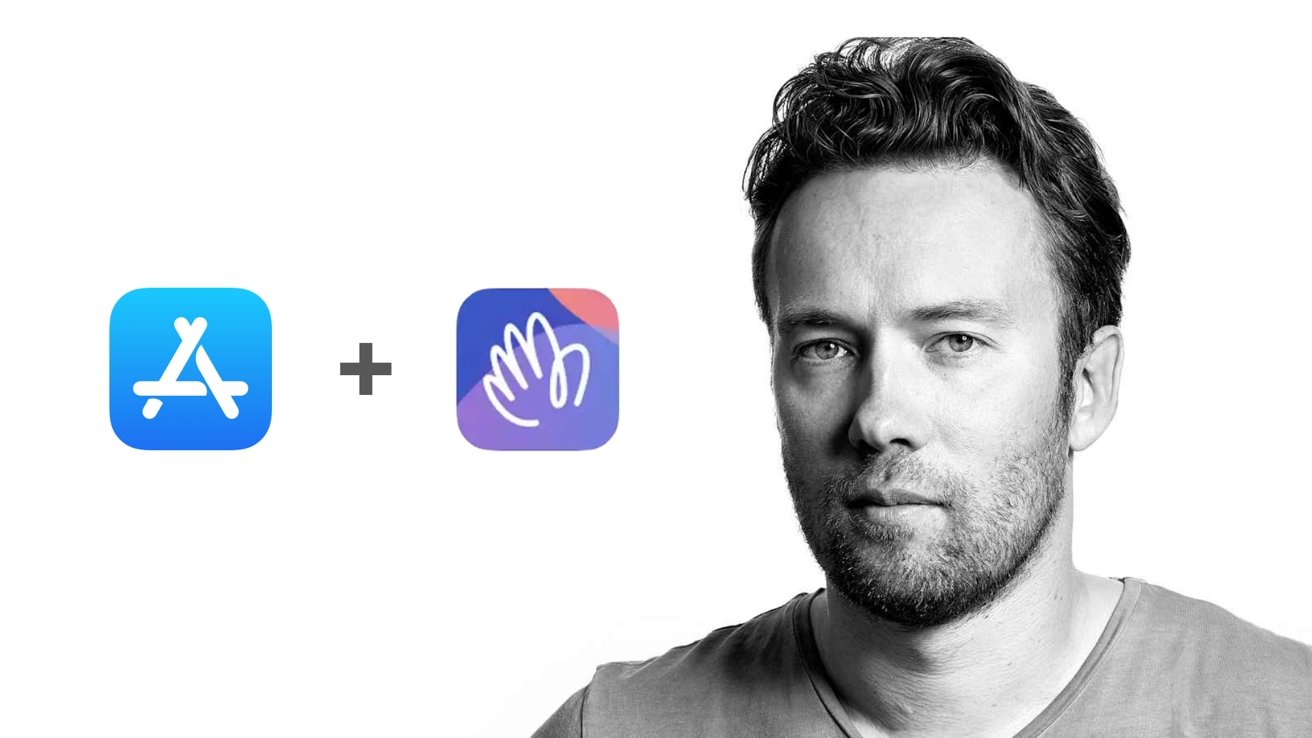
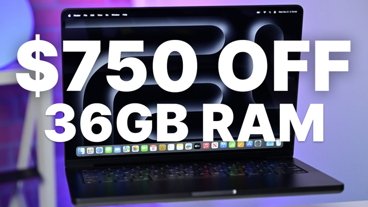




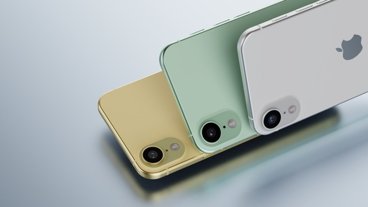

-m.jpg)


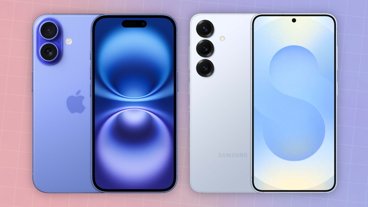
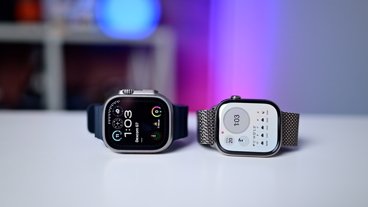

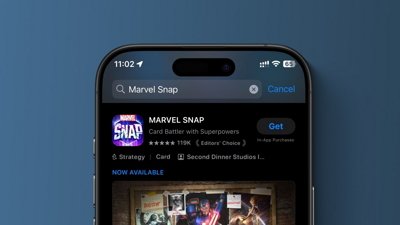
 Marko Zivkovic
Marko Zivkovic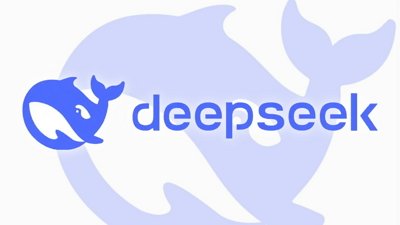
 Malcolm Owen
Malcolm Owen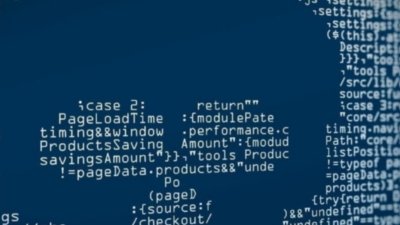

 William Gallagher
William Gallagher
 Amber Neely
Amber Neely
 Wesley Hilliard
Wesley Hilliard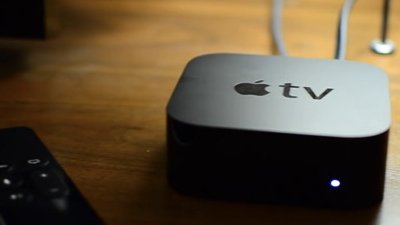
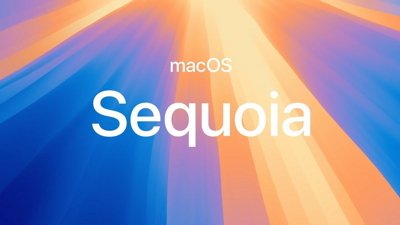

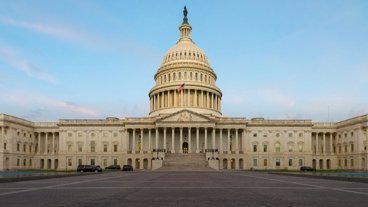
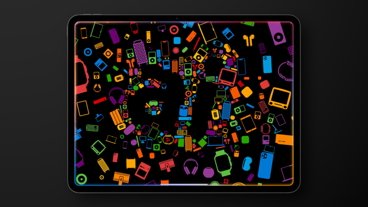



6 Comments
Hansson doesn't actually understand what "tying" means when it comes to antitrust law in the United States.
Here's what it is: "an agreement by a party to sell one product but only on the condition that the buyer also purchases a different (or tied) product, or at least agrees that he will not purchase that product from any other supplier." Hansson attempts to claim that Apple Music is an example of "tying", but does it fit the quote above? Does Apple require iPhone purchasers to also subscribe to Apple Music? Does Apple require people to never subscribe to a competing music service? No? Then why try to claim they're "tying" that service?
Hansson tries really hard to sound like he's all about being genuine and straightforward, but the above example that he's trying to sell is way off.
just seems like another selfish ceo to me. Doesn’t really care about the customer
Wow! Some fundamental flaws in David’s allegation of monopoly abuses and general perspective;
1) Apple created it’s customer base that Hey and others capitalise upon not the other way around. Apple boosted Hey’s revenues by 77% not the other way around.
2) The App Store pre-dates Apple’s dominant market share, not the other way around. David admits the rules haven’t changed, just Apple’s ability to enforce them.
3) Apple Music doesn’t disadvantage Spotify, Apple’s own Apps incur the same conveyance costs of other Apps or is he saying there are no costs?
4) The other Apps don’t allow/promote chargeable service in-app.
5) Hey got away with bypassing the rules for 4-years. This is like saying a robber should be let off because he’s been on the run for long enough.
David seems to be corrupting cause & effect to his own end and even demonising Apple’s success.
The word “No” to a human is a red rag to a bull. A horrible tirade of self-victimisation.
This one was painful to listen to. David was doing nothing but whining. Poor Me should have been the title.